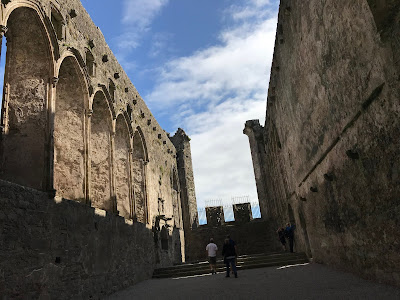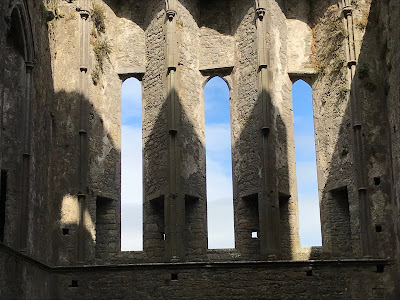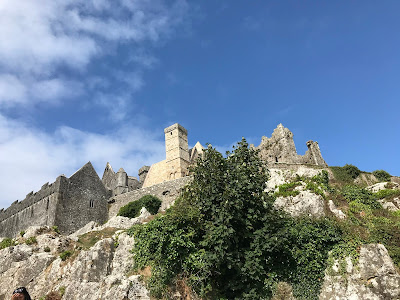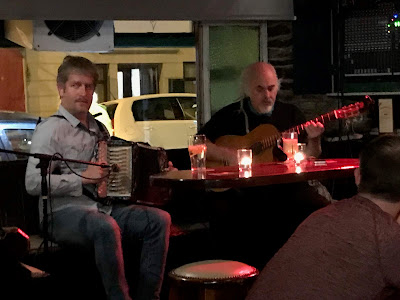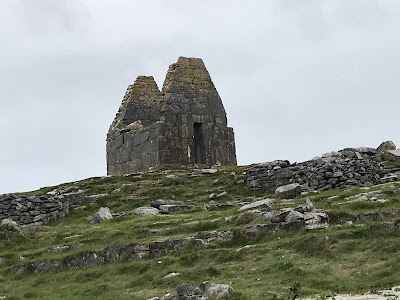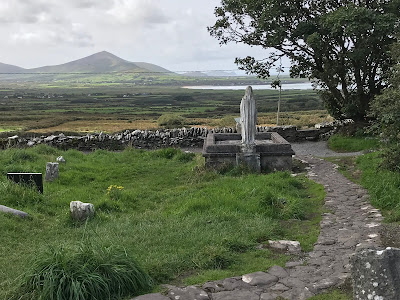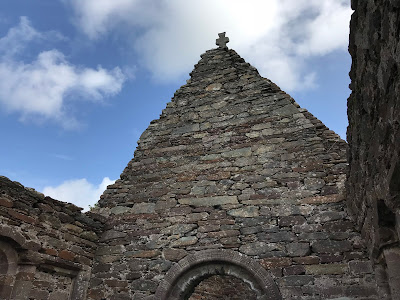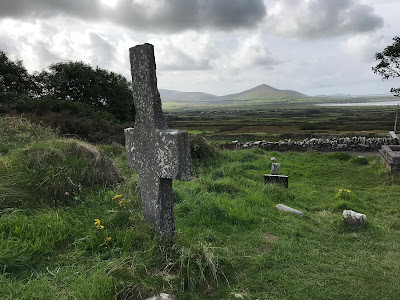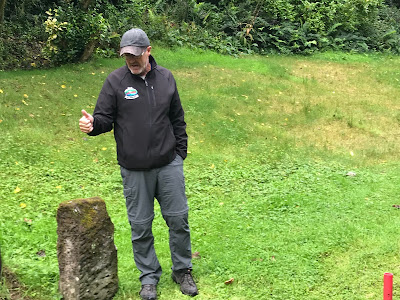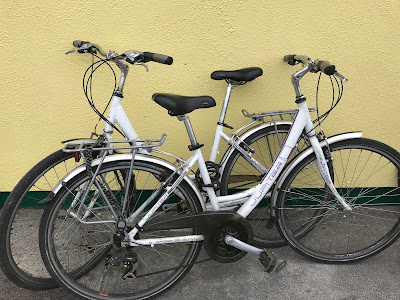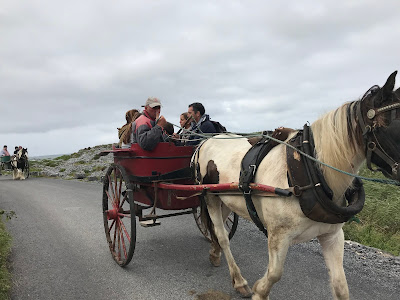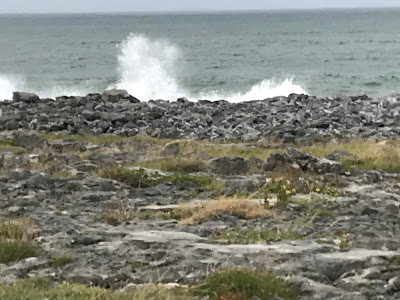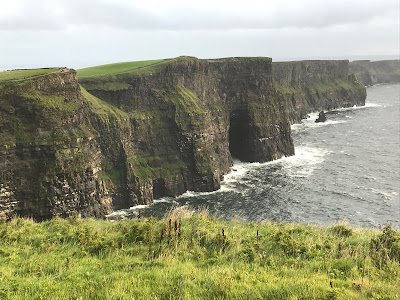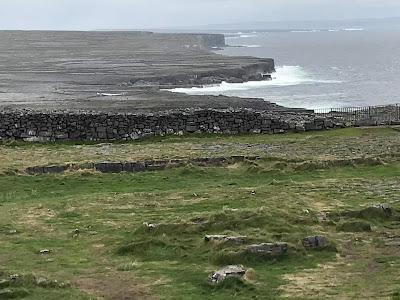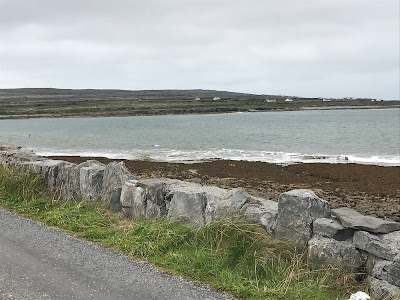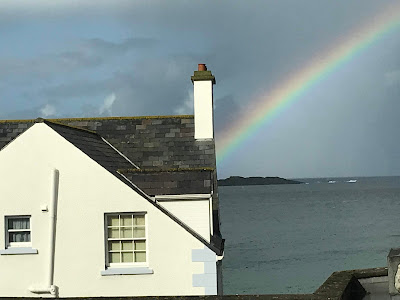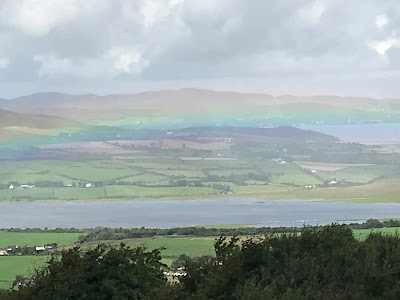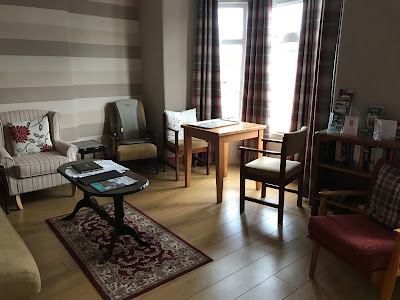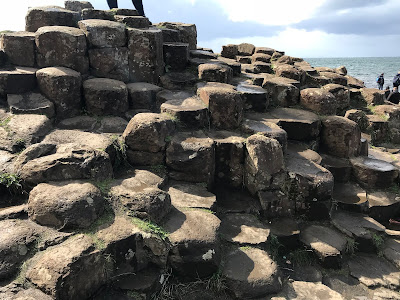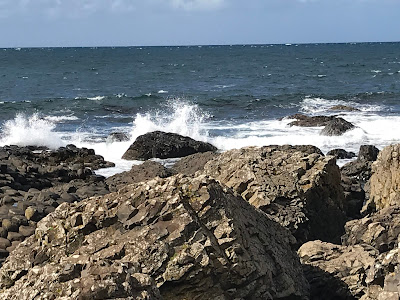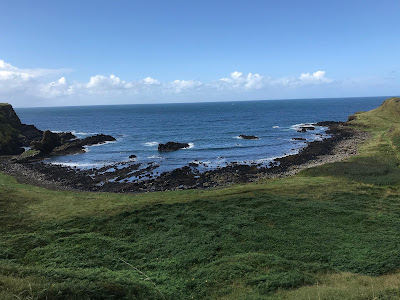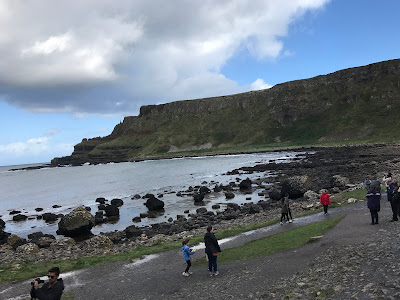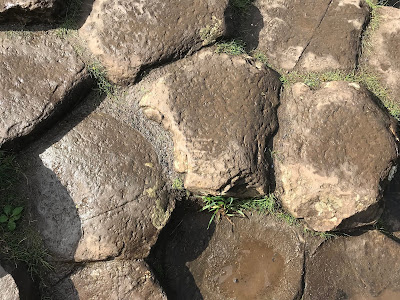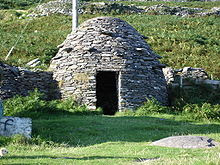Rock of Cashel
Home to the ancient kings of Ireland and reputedly the place where Saint Patrick baptized one of them, the Rock of Cashel looms above the fertile green fields of Tipperary. Though it has been an important site since at least the fifth century, the buildings that remain are “only” from around 1101.
Ten days in Ireland has made me less likely to use quotation marks around that “only.” The old ring forts of Dingle are 2,000 years old, for example. But I don’t want to become an antiquity snob.
So I stood today in the ruined cathedral and looked up at Saint Patrick’s cross, the round tower and and the blue sky through what’s left of the cathedral windows. I let my mind run free, back to a dimmer, grimmer time, one of stone and chisel, blood and smoke.

